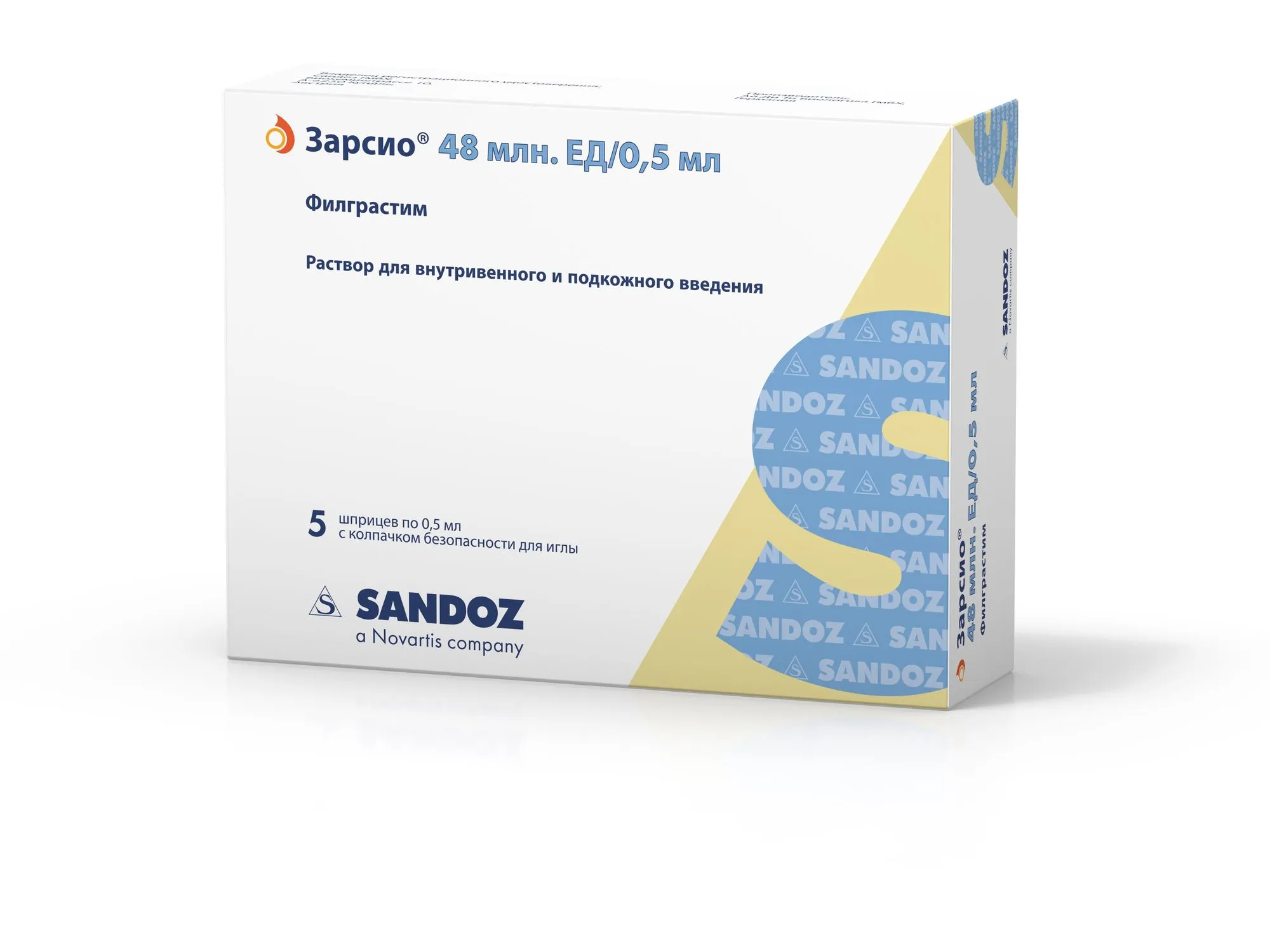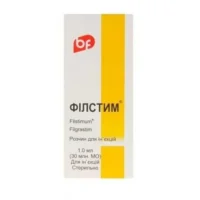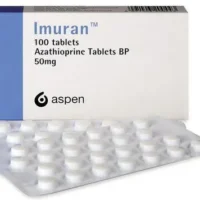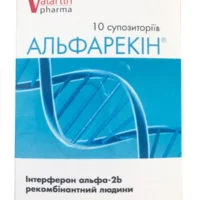Description
Zarsio (Filgrastim) Solution for Injections and Infusions 30 Million Units/0.5 ml. 1 Syringe №5
Ingredients:
- Active ingredient: Filgrastim
- Inactive ingredients may include citric acid, polysorbate 80, sodium hydroxide, and water for injection
Dosage:
Dosage: The usual dose is 5 mcg/kg of body weight per day, administered as a subcutaneous injection or an intravenous infusion over 30 minutes
Indications:
Indications: Zarsio is indicated to decrease the incidence of infection in patients with non-myeloid malignancies receiving myelosuppressive anti-cancer drugs associated with a significant incidence of severe neutropenia
Contraindications:
Contraindications: Zarsio is contraindicated in patients with a history of serious allergic reactions to filgrastim or any of the components of the product
Directions:
Directions: Administer Zarsio under the guidance of healthcare professionals experienced in cancer chemotherapy
Scientific Evidence:
Filgrastim, the active ingredient in Zarsio, is a recombinant human granulocyte colony-stimulating factor (G-CSF) that stimulates the production of neutrophils in the bone marrow. Clinical trials have shown that filgrastim can reduce the duration of neutropenia and the incidence of febrile neutropenia in patients undergoing chemotherapy
Additional Information:
Zarsio has been shown to be effective in reducing the risk of infection in patients undergoing chemotherapy. It is well-tolerated, with common side effects including bone pain, headache, and fatigue. Before using Zarsio, inform your healthcare provider about any existing medical conditions or medications you are taking
Pharmacologically, Zarsio acts by stimulating the bone marrow to produce more neutrophils, which are essential in fighting infections. This helps in reducing the risk of infections in patients undergoing chemotherapy, where the immune system is often compromised
Clinical studies have demonstrated the efficacy of Zarsio in reducing the incidence of febrile neutropenia and the need for antibiotics in cancer patients undergoing chemotherapy. The drug has shown comparable effectiveness to other G-CSF products in clinical trials, making it a valuable option in the management of chemotherapy-induced neutropenia





